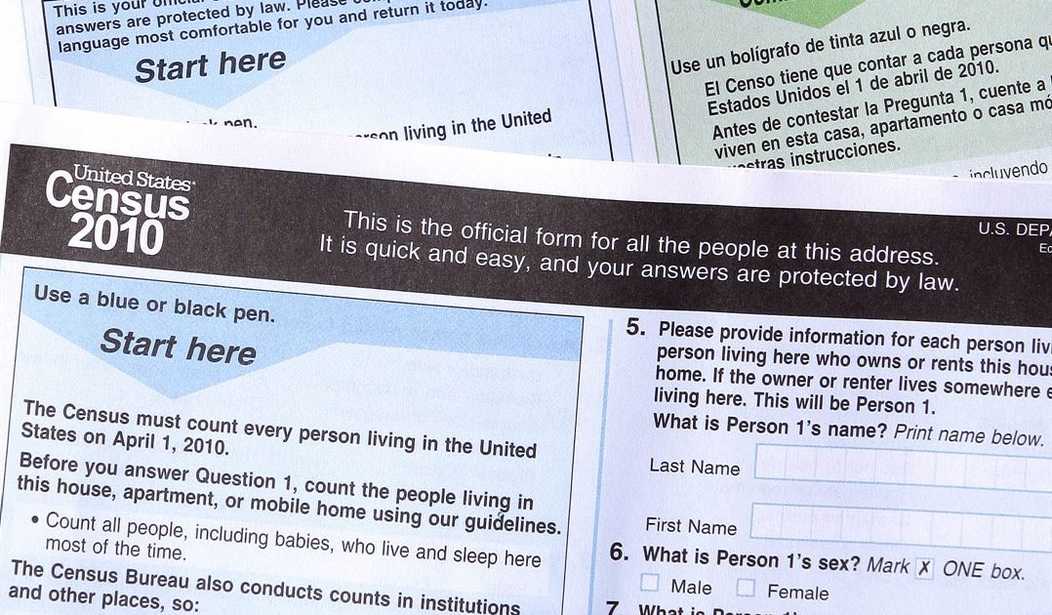In a last-minute decision this week, the Commerce Department decided to include a question on citizenship on the 2020 census form mailed to every household in the United States. On its face, the addition seems benign. Why shouldn't the agency charged with counting America's population and gathering other demographic information simply ask every person whether he or she is a U.S. citizen?
But as with most things Trumpian, skeptics regard this move as having sinister motives. Not so, says the president's press secretary, Sarah Huckabee Sanders. It's all about enforcing laws designed to protect minority voters. The question, she said in her daily briefing, will provide "data that's necessary for the Department of Justice to protect voters" and "help us better comply with the Voting Rights Act." She also claimed, "This is a question that's been included in every census since 1965 -- with the exception of 2010, when it was removed." She is wrong on all counts.
The most recent time a question on citizenship was asked of every household in the United States was 1950. Since then, the Census Bureau has collected information on citizenship from only a representative sample of the population: the approximately one-sixth of households that receive the so-called long-form questionnaire, which asks a number of demographic questions. In earlier eras, this form asked whether the household had indoor plumbing, and more recently, it has asked whether the person has grandchildren living in the home for whose care he or she is responsible. The long-form version provides substantial data about the living conditions, work history and education of the U.S. population, which are supplemented by periodic smaller surveys undertaken by the bureau to collect such information. As for the point Sanders made about the citizenship question's being dropped in the one census that took place on Barack Obama's watch, the question wasn't asked because no long-form questionnaire was sent out in 2010. Instead, the bureau relied on data collected in the American Community Survey, launched in 2005 to gather data from some 3.5 million representative households a year, which can be extrapolated for the entire population.
Recommended
The U.S. census goes back to 1790 and is required by the Constitution. Its primary purpose is to apportion congressional districts based on population. Contrary to what many people think (or may want), congressional districts are not apportioned on the basis of how many citizens live in the district or even how many eligible voters do. In 2016, the Supreme Court unanimously upheld the long-standing practice that states apportion their congressional districts based on the number of people living in the district, not on the number of citizens or eligible voters. And this decision may well be why the Trump administration has made this change.
The 2016 court ruling was unanimous in finding that apportioning congressional districts on the basis of population is constitutional, but it did not deal with whether states could choose to do so on the basis of the number of citizens or even eligible voting-age population in the future. A number of the court's more conservative members seemed open to allowing states to do so if they chose. Clarence Thomas suggested, "The choice is best left for the people of the states to decide for themselves how they should apportion their legislature." But if states decide to go that route, they will need census data that are complete, not simply a representative sample based on a smaller survey; thus, we have the new question on the 2020 census.
Reapportionment after the 2020 census could well open up the opportunity for states to change how they count. States that choose citizens as the proper unit will exclude immigrants who have not naturalized, and states that choose voting-age population could exclude children and other ineligible people, such as felons and the mentally disabled. There is an argument to be made that including large numbers of ineligible people in voting districts creates so-called rotten boroughs, which undermine representative government. But the debate on whether and how to change the way we apportion voting districts deserves serious and open discussion, not subterfuge on the part of a White House not known for candor.

























Join the conversation as a VIP Member